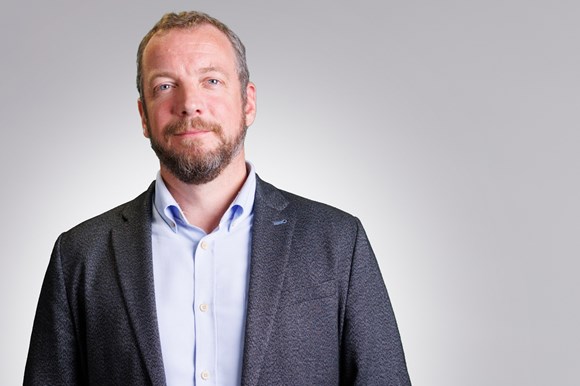A 'one stop shop' for South Korean offshore wind permitting?
Korea’s offshore wind power sector is hungry – and primed for – rapid growth, but its licence and permitting regimes are still evolving. What lessons can be learned from other regions that have streamlined their approvals processes towards the award of a comprehensive consent, such as the UK’s Development Consent Order (DCO) process?
A multi-agency approvals process
The ambitious plans set forward in the Green New Deal mean that South Korea is set to be an exciting and valuable new market for renewable energy. However, like other markets that have entered the developing offshore wind sector before it, South Korea is starting out with permitting regimes that were not designed for offshore wind.
Currently, multiple agencies and applications are involved in the process. Ulsan City, for example, involves more than seven different bodies, from local government to the Ministry of Oceans and Fisheries, the Ministry of Defence and the Ministry of Cultural Heritage. (Ulsan City is an important location for this sector, with several developers taking projects through the early stages of development. It is also where the two Floating LiDAR buoys delivered by RPS are deployed as part of feasibility studies for Korean offshore wind power.)
This multi-agency situation will be familiar to those who worked on early offshore wind projects elsewhere in the world. In the UK, multiple permissions, granted by multiple agencies under multiple pieces of legislation, would originally have been needed under the previous planning regime. However, the current planning regime acts as a ‘One Stop Shop’ where the Planning Inspectorate (PINS) will make a recommendation on the award of a Development Consent Order (DCO) for a development, removing the need to seek multiple approvals. Within this system, other authorities and agencies, stakeholders and the public can highlight concerns or provide comments on the application (and these must be considered by PINS in making their recommendations).
Consolidating a multi-faceted regime into a single one means that one authority evaluates multiple interests – from the local community and to protect the natural environment, through to visual impact and defence considerations – awarding (or recommending award of) a comprehensive consent (or permit) for a development. This streamlines the permitting stage considerably, even if multiple consultations are still necessary – and are indeed advisable – to maintain effective communication and provide appropriate consideration of all interests.
South Korea is currently considering a ‘One Stop Shop’ permitting process, although it is still under discussion. So what must developers working in the region consider to ensure the successful outcome of their projects, and what other advantages could a simplified system bring?
国内認可:洋上風力団地開発事業者の課題
開発者にとって単純化されたプロセスが良いということは明らかな事実です。より効率的なだけでなく、プログラムのリスクも予防できるという意味です。単一の機関によって評価された包括的な同意は、透明性はより高いかもしれませんが、様々な組織やプロセスを処理して潜在的に異なる法律に従って他の様々な許認可を得るのはさらに複雑になる可能性があります。業界の観点からもこのようなアプローチは意思決定においてより全体的な視点を持つことができます。
特にワンストップショップはプロジェクト期間を大幅に改善することができます。韓国の新しいライセンスシステムの導入(one-stop-shop方式を含む)は、プロジェクト開発期間を2年以上短縮することを目指しています。効率性の向上以外にも、利害関係者に対して開発の社会的受容性を高めるようにすることが必要です。これは、もう一つの考慮事項として、適時のプロジェクト成功のために重要なものです。
国際的に、プロセス遅延を許すことが、業界と政府が目指している洋上風力の効率的かつ迅速な配置における主な障壁となっていることはよく知られています。2050年までにカーボンニュートラルの達成を目指す韓国の目標達成をサポートするためには、効率性の高い許認可のプロセスが不可欠です。競争市場において徹底的かつ強力に維持される簡素化された時期適切なプロセスを提供することは、将来の国際的な投資誘致にも重要な要素となるものと考えられます。
開発事業者の場合、特に市場発売のスピードと利害関係者の信頼保証が優先されるべきものであることを考えるならば、簡素化されたより効率的なプロセスが頭痛の種となるものをなくしてくれます。申請に対する検討を担当する単一機関との包括的な同意は、プロジェクト遅延のリスクを減らし、開発期間に対する大きな確信を与え、開発管理者が投資家と利害関係者により明確な期待値を提供することを可能にします。イギリスのようなワンストップショップシステムがある国では、このようなコミュニケーションの課題を解消しました。プロジェクトが複数の許可とそれに関する複数の利害関係や長期にわたる検討によって遅延する場合には、多大な費用がかかるだけでなく障壁となる可能性があります。
Processes and partnerships: the keys to project success
It is in the offshore wind industry's interest to ensure robust, transparent permitting regimes to result in responsible, sustainable and therefore successful projects. RPS advice is that projects also need to consider and comply with international standards as well as local ones so that they meet the requirements of most International Financial Institutions.
Related read: Offshore wind Korea – obtaining a local and international licence to operate
With decisions still to be made over the future of South Korea’s offshore wind permitting process, how can you increase the chances of success for your current projects under the current permitting regime?
Partnering with an experienced consultant with both local and international experience is essential. Local knowledge can help untangle individual regulatory processes, as well as providing ways to understand and address local needs. International experience brings learnings from more established wind power industries that have overcome similar hurdles and set their own precedents.
At RPS, we benefit from our South Korean partner SEKWANG Engineering Consultants’ expertise in maritime engineering and infrastructure. SEKWANG has taken the lead in developing Korean maritime and port infrastructure for over 50 years. Meanwhile, our own deep expertise in this sector was gained in working on world-firsts for the offshore industry, such as leading the EIA for the world’s largest offshore wind project, Hornsea Three; the environmental studies for Australia’s first offshore wind project, Star of the South; and providing marine subject matter expertise to support Vineyard Wind, the United States’ first utility-scale offshore wind energy project. We are hugely excited to see how the South Korean offshore wind power industry develops and to be a part of its evolution.
If you would like additional information on the permitting process to meet local and international environmental and social requirements and obtain project finance, please don't hesitate to contact Sam Roh, Country Manager South Korea, sam.roh@rpsgroup.com; or Alun Williams, Director - Offshore Renewables, williamsal@rpsgroup.com.
Contact the author


